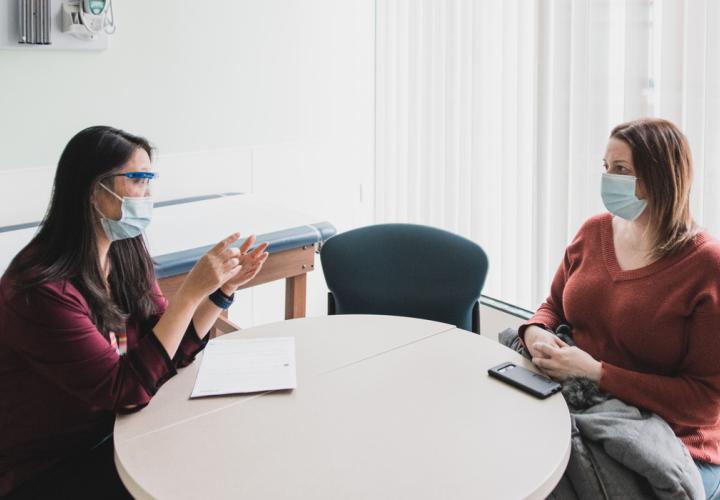What shouldn’t I do if I have a high risk pregnancy?
Please try to resist doing any of the following. Don’t:
- Blame yourself—Your high-risk pregnancy is not your fault, so avoid phrases like, “What did I do wrong?” or, “What could I have done differently?” Most of the time, it’s just the course of how the placenta develops.
- Compare stories—Your journey is your own, and no one else’s. Pregnancy is not a race, and everyone’s high-risk pregnancy is different, even if you find you have the same condition as someone you know.
- Consult Dr. Google—Please don’t do this, although it may be tempting. Nothing positive will come out of a medical Google search.
- Overuse social media—You’ll find there are many “support groups” on social channels. While they can be helpful, do proceed with a bit of caution for the same reasons above.
- Isolate yourself frequently—Processing your emotions is important, but do your best to keep to your usual routine for your mental health’s sake. You will have the same outcome regardless—which goes for any challenge you face in life.
What high-risk pregnancy resources exist?
In addition to exploring therapy, there are some resources for fetal conditions. You might want to look into:
Additionally, you can find support in your area through March of Dimes.
Should you seek care at the Fetal Care Center at Connecticut Children’s, we’ll connect you with the support you need, including transportation, social work and tours of our NICU and PICU. We’re here for you.
——
About the Fetal Care Center at Connecticut Children’s
The Fetal Care Center at Connecticut Children’s offers comprehensive diagnostic testing, treatment and fetal surgery for complex fetal conditions.
Families with high-risk pregnancies receive care all under one roof at our state-of-the-art facility, right in Connecticut Children’s Main Campus in Hartford at 282 Washington St. The Center is located on the 2nd floor, Suite F
